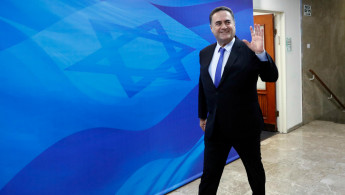Israel FM met mystery 'Arab counterpart' at UN summit
Writing on Twitter, Katz said: "A first, fascinating meeting yesterday on the sidelines of the UN meeting with one of the Arab foreign ministers."
"We discussed in depth the regional realities and ways to deal with the Iranian threat, while at the same time agreeing on a process for promoting civilian cooperation between the two countries. A new and challenging reality," he added.
The Gulf Arab states are notably warming ties with Israel, with Katz having met Bahrain's foreign minister at a conference in Washington in August and a senior Emirati official at another conference in July.
Katz previously stated at a meeting of the Israeli Knesset's Foreign Affairs and Defence Committee that normalising ties with Arab countries was one of his top priorities.
Twitter Post
|
"My goal, with the full backing of the prime minister, is to work toward open normalisation, to widen it and make it public and to reach diplomatic agreements" with Arab countries, Katz reportedly said at the meeting in August.
Katz has stepped in as Israel's representative at the annual UN summit, as Prime Minister Benjamin Netanyahu pulled out of the trip due to a deadlock in negotiations over forming a new coalition in Israel.
Amid rising tensions between Israel and regional adversaries Iran and Lebanon-based Hezbollah militants, Israel under Netanyahu has been building security ties with Gulf Arab countries including Saudi Arabia, Bahrain and the UAE.
Lucrative economic ties are also on the table, such as a purported deal to build a gas pipeline to provide Saudi Arabia with a supply of Israel's natural gas.
Gulf rulers have come under harsh criticism for their perceived abandonment of support for Palestinian statehood and the rights of millions of Palestinians living under occupation.




 Follow the Middle East's top stories in English at The New Arab on Google News
Follow the Middle East's top stories in English at The New Arab on Google News
![The UAE is widely suspected of arming the RSF militia [Getty]](/sites/default/files/styles/image_330x185/public/2024-11/GettyImages-472529908.jpg?h=69f2b9d0&itok=Yauw3YTG)
![Netanyahu furiously denounced the ICC [Getty]](/sites/default/files/styles/image_330x185/public/2024-11/GettyImages-2169352575.jpg?h=199d8c1f&itok=-vRiruf5)
![Both Hamas and the Palestinian Authority welcomed the ICC arrest warrants [Getty]](/sites/default/files/styles/image_330x185/public/2024-11/GettyImages-2178351173.jpg?h=199d8c1f&itok=TV858iVg)